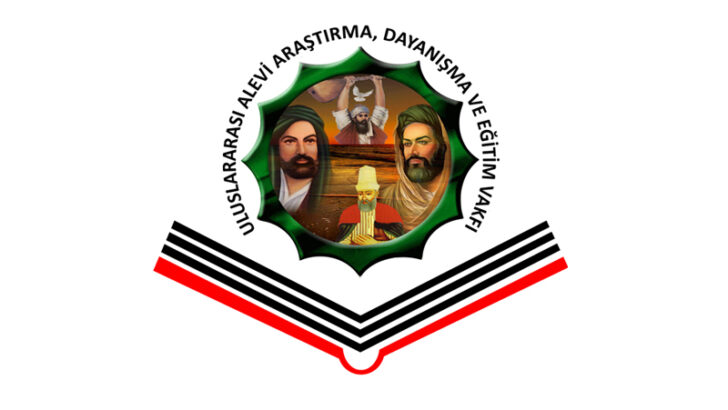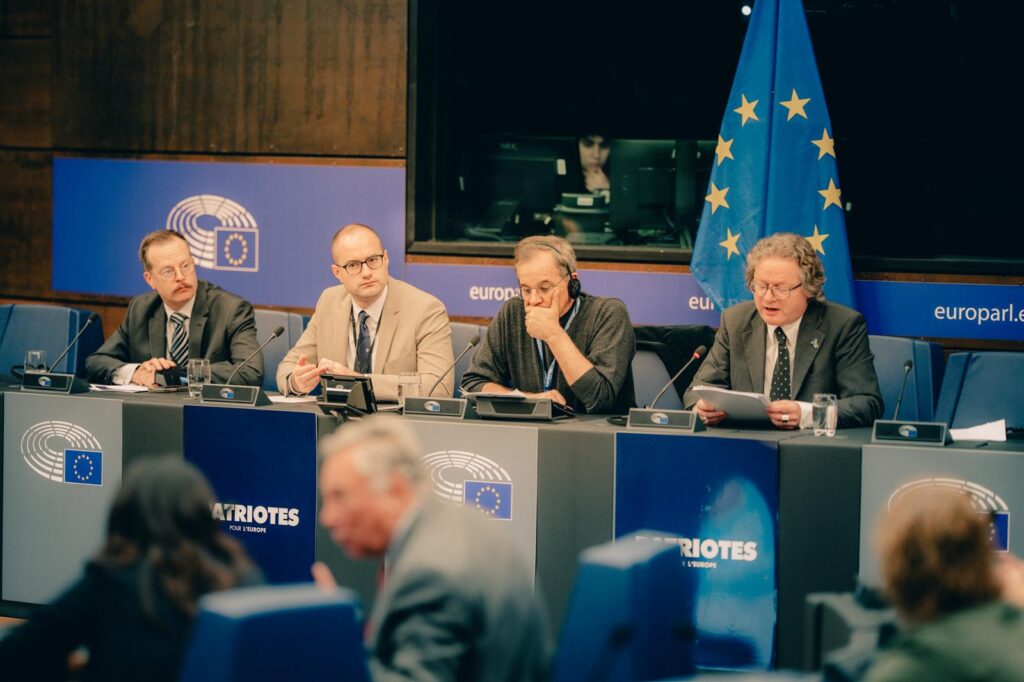Lecture by Prof. Dr. Jens Kreinath in the European Parliament on the Situation in Syria:

Lecture by Prof. Dr. Jens Kreinath in the European Parliament on the Situation in Syria: War Crimes Against Alawites and Other Religious Minorities – Recommendations for a Future That Protects Minorities
Author of the article: Hüseyin Barış Öztürk
Article published on Alevi-Portal on 14 October 2025
On 9 October 2025, Assoc. Prof. Jens Kreinath gave a speech in the European Parliament on the recent massacres in Syria, particularly those targeting the Alawites and Druze.
A- On the Speech in the European Parliament
In his presentation to 55 EU parliamentarians, Kreinath briefly recalled the political situation: beginning with the overthrow of Bashar al-Assad on 8 December 2024, the subsequent rapid collapse of the Assad regime, the escalation of violence, which led to “targeted attacks against Alawite, Christian and Druze communities” at the beginning of 2025 and exacerbated the conflict.
Alawites and Druze were particularly targeted because they were considered apostates and heretics who had left the house of Islam; they were treated like animals. With regard to Christians, there are relentless attempts to persuade them to convert to Islam. Their bodies, left behind after the massacres in Latakia and Suweida, were mutilated, burned and left lying in the open, “to decompose and be eaten by animals”.

Charles de Meyer
Based on on-site interviews and other documentation from his institute, Kreinath described some of the atrocities committed in the following three crimes: The massacre of 7 March 2025 against the Alawite civilian population in the coastal regions, the heinous suicide bombing of 22 June 2025 in the Mar Elias Church in Damascus, which left numerous dead and injured, and the military siege of Druze and Christian communities in Suweida in mid-July 2025.

Charles de Meyer
Kreinath then highlighted the consequences of the crimes against religious minorities: in particular, population decline and displacement, ongoing systematic discrimination, expropriation and the destruction of livelihoods. Towards the end of his speech, he proposed solutions and appealed to the MEPs: “Justice delayed is justice denied. And silence, in the face of such suffering, is unequivocal complicity. Only if the voices of the victims are heard will justice be found. You decide where silence ends and justice begins.”
Download the speech in the European Parliament as a PDF file:
B – On the Draft Resolution
In addition, Kreinath has submitted a draft resolution for Syria on behalf of his institute IDHRV-ARMIL (“Institute for the Documentation of Human Rights Violations against Religious Minorities in the Levant Inc.”). It lists recommendations to be made by the European Parliament and the Human Rights Council.
These include, for example, the establishment of constitutional structures with the aim of establishing justice throughout Syria. Kreinath sees a way to achieve this by aligning the Syrian state’s own international law with, for example, the Rome Statute of the International Criminal Court (ICC) based in The Hague. At present, the ICC is unable to take action on the massacres of the Alawite population in early March 2025, as well as those of the Druze and Christians. This is because Syria has not submitted to the jurisdiction of the ICC.
Kreinath sees one path to national reconciliation in the establishment of a ‘Truth and Memory Commission’ for a period of about one and a half to two years. Such commissions are not new. The ‘Truth and Reconciliation Commission’ (TRC) which operated in South Africa from 1996 to 1998 to investigate the politically motivated crimes of the apartheid regime, and the so-called ‘Valech Commission’, which investigated human rights violations during the Chilean military dictatorship (1973–1990) from 2001 to 2004.
However, Kreinath categorically rejects a blanket amnesty for crimes such as murder, torture, sexual violence or ethnic cleansing in the context of social reconciliation.
With regard to religious minorities (Alawites, Christians, Druze, etc.), the Syrian Arab Republic should be called upon “to adopt a Law on Religious Freedom and Anti-Discrimination, guaranteeing the protection of places of worship, freedom of religious instruction, and burial rites in accordance with cultural traditions”.
Further recommendations concern freedom of expression, dealing with the media, culture and education …
The draft resolution focuses consistently on the protection of religious minorities. Western nations should therefore consider the protection of minorities as one of the central pillars of the reconstruction programme when rebuilding the country.
Download the Draft Resolution as a PDF file:
C – Brief Profile of Jens Kreinath
Jens Kreinath (born 1967) is an associate professor in the Department of Anthropology at Wichita State University in Kansas (USA).
He is the author of standard works such as The Anthropology of Islam Reader. He has also written various essays on Alevi topics, such as “Dynamics of Ritual Reflexivity in the Alevi Cem”.
In July 2025, he founded a non-profit institute in the state of Kansas (USA) to document crimes in Syria for legal prosecution:
“Institute for the Documentation of Human Rights Violations against Religious Minorities in the Levant (IDHRV-ARMIL) Inc.”
Previously, he was chairman of the association „GESELLSCHAFT für MENSCHENRECHTE in SYRIEN“ (Association for Human Rights in Syria / SURİYE İNSAN HAKLARI DERNEĞİ), founded on 12 April 2025 in Mannheim, Germany.
Copyright by Alevi-Portal 2025





